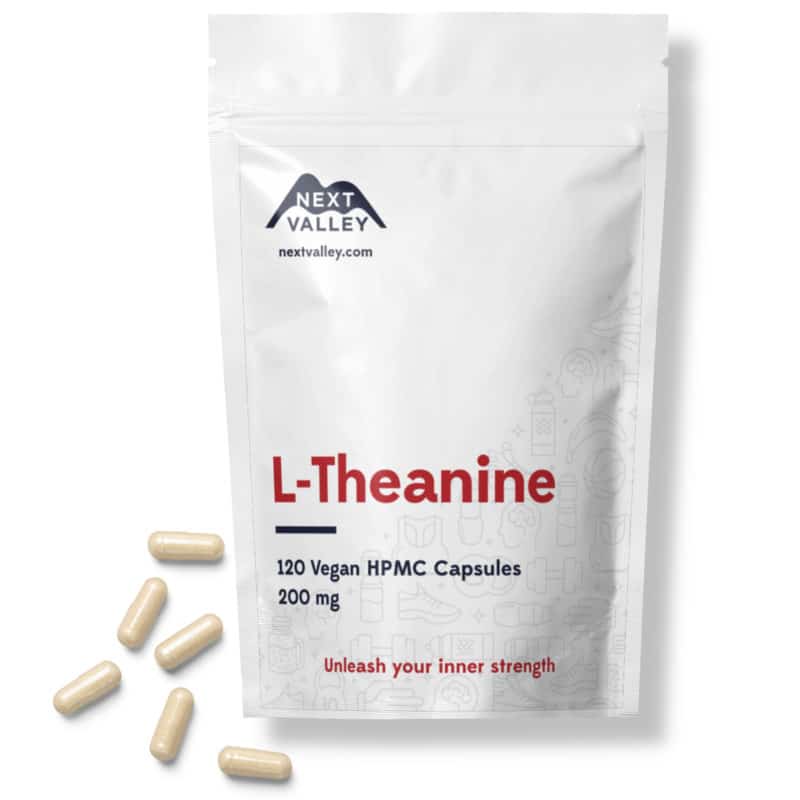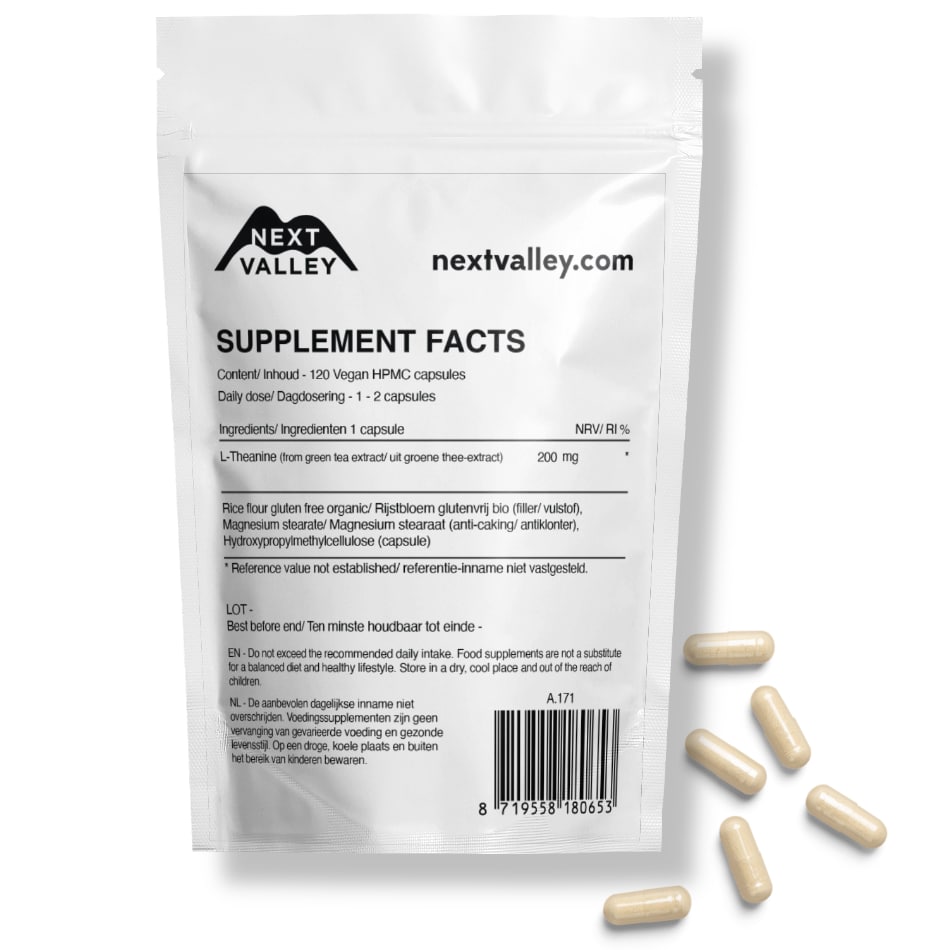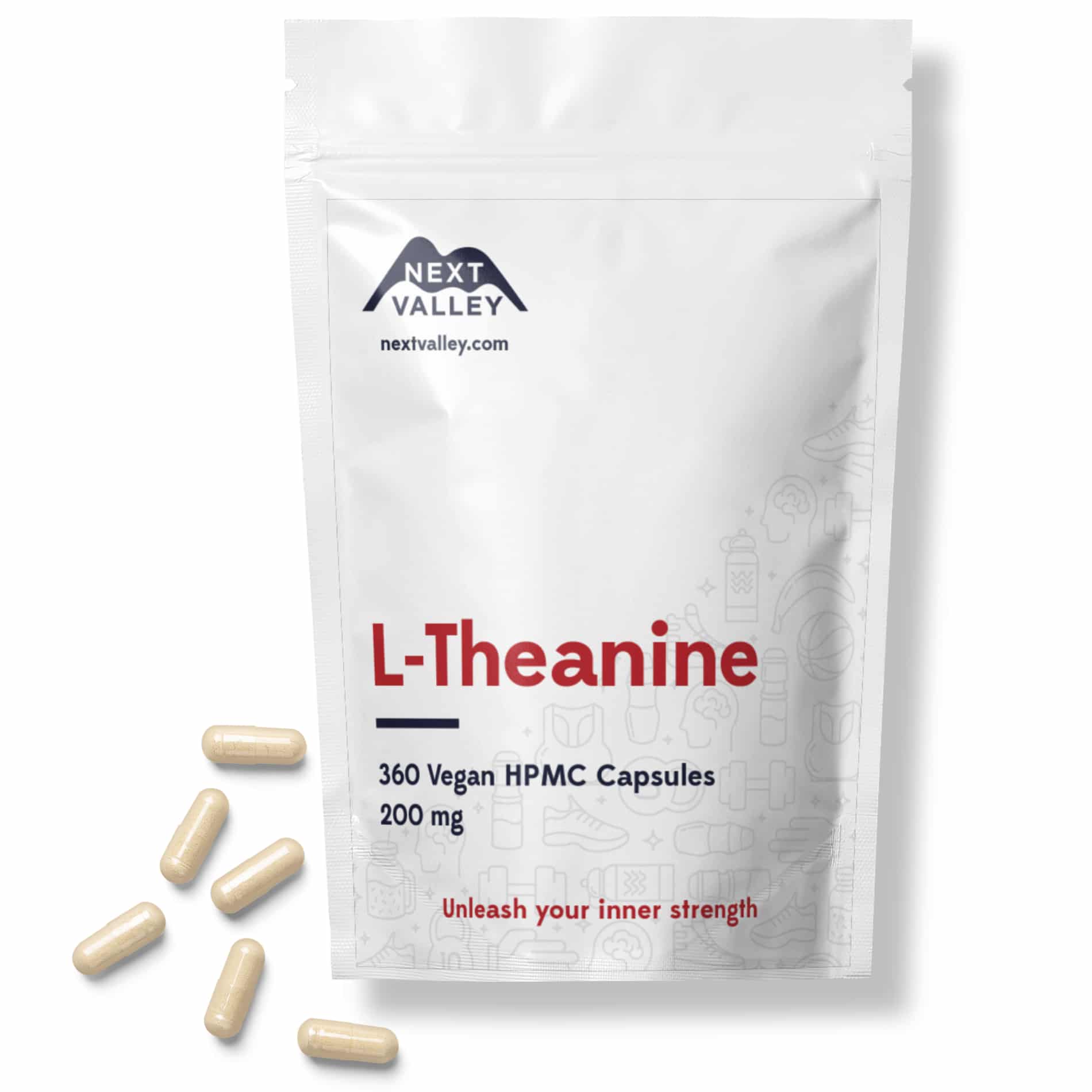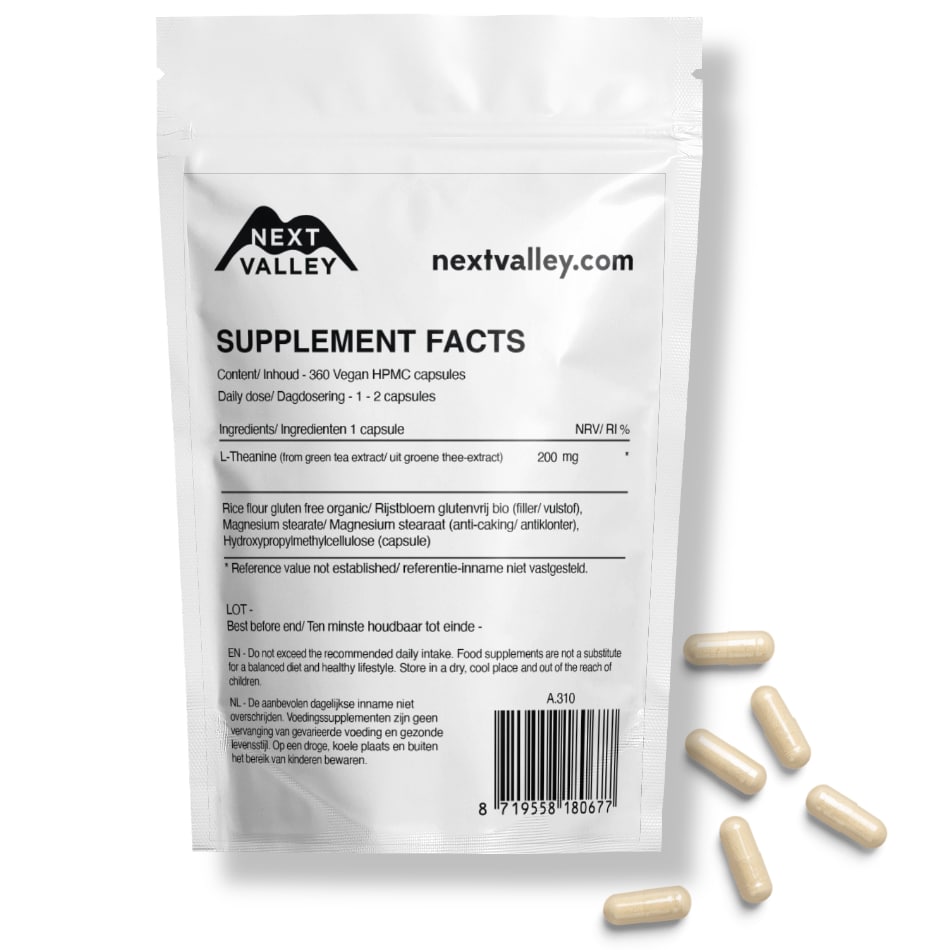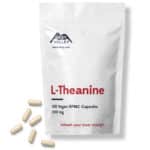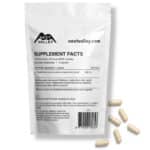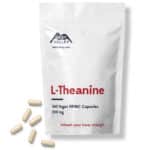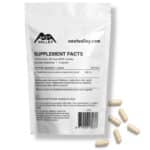What is L-Theanine?
L-Theanine is, as the name suggests, a substance that occurs naturally in the leaves. In 1950 it was already extracted from gyokuro leaves, a type of green tea. The substance Theanine is an amino acid, in other words a building block for proteins. While it is possible in nature’s tea, supplementation is the main source of L-Theanine. L-Theanine has structural similarities to glutamine. Theanine is quickly absorbed.
Properties
L-theanine is a glutamine-like amino acid that is water-soluble. The unique amino acid does not belong to the essential of non-essential amino acids and is not found in body proteins. Theanine, several different neurotransmitter systems in the brain (Dop@mine, GABA Glutamate, Serotonin).
Dop@mine
(Why the @? Otherwise Google will mark this page as an illegal drug page?!?)
This is the reward substance your brain craves. It serves to develop to look for the things you need to survive.
GABA
Responsible for the right of muscle tone, Gamma-Aminobutyric Acid (GABA) also regulates the communication between brain cells. It can arise from us by reducing the speed our neurons fire.
Glutamate
The cells most abundant neurotransmitter in the offending, glutamate, is used by nerve cells to transmit similarities to others.
Serotonin
Serotonin is related to our well-being and happiness, and our thoughts are influenced by activities and effects of sunlight. It also aids in mood balance, sleep cycle and our digestion.
L-Theanine is also made in combination with Caffeine, often in the ratio 2:1 – L-Theanine:Caffeine.
In addition, it is often combined with Magnesium for Cognitive Support.
External Resources
Next Valley may not be overstated about properties and uses of L-Theanine if they are not approved as a health claim by the European Commission.
For more information, we direct you to external sources.
Dose
The most common dose to take L-Theanine is 200 mg per day. Take on an empty stomach with water between meals. Always start with the lowest dose, if the effect is insufficient, this can easily be adjusted upwards.
Side effects
There are very few known side effects of L-Theanine. There are animal studies in which these animals were given huge doses of L-Theanine for weeks and the conclusion was that even at these doses there was no measurable toxicity. Too little research has been done on side effects of breastfeeding, so it is used when you are pregnant or breastfeeding.
Ingredients
Daily Recommended Dosage: 1 to 2 capsules
Ingredients per 1 capsule
200 mg L-Theanine (from green tea extract)
Gluten-free organic rice flour (filler)
Magnesium stearate (anti-caking agent)
Hydroxypropyl methylcellulose (HPMC) capsule
Manufacture date: 20221230
Best before date: 20241229
Packing date: 20230227
Lot No.: 230227
Instructions for use
Do not use if you are under 18, or if you are pregnant or breastfeeding. Do not use if you have high blood pressure or medical complications. Always consult an expert before using new food supplements. A healthy lifestyle is important, as is a varied, balanced diet for which supplements are no substitute. Do not exceed recommended dosage.
Recommended dosage: As a dietary supplement for adults, take 1 to 2 capsules daily, preferably on an empty stomach or between meals with water.
Keep cool, dry and closed.
Certificate of Analysis
A Certificate of Analysis may sometimes be referred to as a COA, a CofA, a Certificate of Conformity, or a Certificate of Conformity. It is a document certifying that a product delivered meets the specifications of the recipient.
Certificate of Analysis for L-Theanine
The content of a Certificate of Analysis varies by industry and product category. Below we discuss the content of a COA that is generally accepted for the raw materials processed in Next Valley products.
What is a Certificate of Analysis?
What is a health claim?
A health claim is any statement about a relationship between nutrition and health.
Legally, Next Valley is not allowed to make statements about the properties and uses of L-Theanine if they have not been approved as a health claim by the European Commission.
The European Commission approves various health claims, provided they are based on scientific evidence and can be easily understood by consumers. The European Food Safety Authority (EFSA) is responsible for evaluating the scientific evidence to support health claims.
The scientific evidence is provided by the health claim applicant. These examinations are usually carried out by the applicant or are known at the time of the application. New studies are only included in the evaluation by EFSA if a new application is made.
| Claim: |
Relief of psychological stress |
| Claim ID: |
1598 |
| Year of evaluation: |
2011 |
| Source EFSA: |
j.efsa.2011.2238 |
| EFSA conclusion: |
no cause-effect relationship |
|
The claimed effects are “relaxation” and “neurological functions”. The target population is assumed to be the general population. In the context of the proposed wordings, clarifications from Member States and references provided, the alleged effects are believed to relate to psychological stress relief. Relief from psychological stress can be a beneficial physiological effect.
The panel concludes that a causal relationship has not been established between the consumption of L-theanine from Camellia Sinensis (L.) Kuntze (tea) and relief of psychological stress.
|
| Claim: |
Reduction of menstrual complaints |
| Claim ID: |
1599 |
| Year of evaluation: |
2011 |
| Source EFSA: |
j.efsa.2011.2238 |
| EFSA conclusion: |
no cause-effect relationship |
|
The claimed effect is “menstrual health”. The target population is believed to be women with premenstrual syndrome. Reduction of menstrual complaints is a beneficial physiological effect.
The panel concludes that a causal relationship has not been established between the consumption of L-theanine from Camellia Sinensis (L.) Kuntze (tea) and reduction of menstrual symptoms.
|
| Claim: |
Improve cognitive function |
| Claim ID: |
1600, 1601, 1935 |
| Year of evaluation: |
2011 |
| Source EFSA: |
j.efsa.2011.2238 |
| EFSA conclusion: |
no cause-effect relationship |
|
The claimed effects are “physical and mental stimulation (hydration and caffeine)”, “mental and cognitive health”, “cognitive function”, “neurological functions”, “physiologically antagonistic to caffeine”, and “cognitive performance: focused attention”. The target population is assumed to be the general population. Improving cognitive function is a beneficial physiological effect.
A causal relationship between the consumption of L-theanine from Camellia Sinensis (L.) Kuntze (tea) and improvement of cognitive function has not been established.
|
| Claim: |
Maintenance of normal sleep |
| Claim ID: |
1737 |
| Year of evaluation: |
2011 |
| Source EFSA: |
j.efsa.2011.2238 |
| EFSA conclusion: |
no cause-effect relationship |
|
The claimed effects are “mental and cognitive health” and “relaxation”. The target population is assumed to be the general population. In the context of theproposed formulations and clarifications by Member States it is believed that the claimed effects relate to the maintenance of normal sleep. Maintaining normal sleep is a beneficial physiological effect.
The panel concludes that a causal relationship has not been established between the consumption of L-theanine from Camellia Sinensis (L.) Kuntze (tea) and the maintenance of normal sleep.
|
